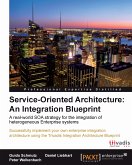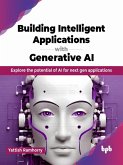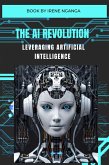Generative AI, a subset of artificial intelligence, has the capability to generate novel ideas, designs, and solutions based on a given set of parameters and objectives. This can revolutionize the way organizations approach enterprise architecture, as it offers the ability to automate and optimize various aspects of the architectural process.
In this subchapter, we will delve into the key concepts and principles of generative AI and its relevance to enterprise architecture. We will explore how this technology can be utilized to streamline the design and decision-making process, reduce time and resources, and ultimately enhance the overall effectiveness of an organization's architectural endeavors.
Furthermore, we will discuss the various applications and use cases of generative AI in enterprise architecture. From creating intelligent blueprints to generating optimized architectural designs, this technology can assist architects and organizations in making informed decisions and developing innovative solutions.
To fully grasp the potential of generative AI in enterprise architecture, it is crucial to understand the challenges and considerations associated with its implementation. We will address the potential limitations and risks of relying solely on generative AI, while also highlighting the importance of human expertise and collaboration in conjunction with this technology.
Lastly, in this subchapter, we will provide practical guidance on how organizations can begin incorporating generative AI into their architectural processes. We will outline the steps and best practices required to successfully implement generative AI solutions, while also emphasizing the need for continuous learning and adaptation.
Dieser Download kann aus rechtlichen Gründen nur mit Rechnungsadresse in A, B, CY, CZ, D, DK, EW, E, FIN, F, GR, H, IRL, I, LT, L, LR, M, NL, PL, P, R, S, SLO, SK ausgeliefert werden.









